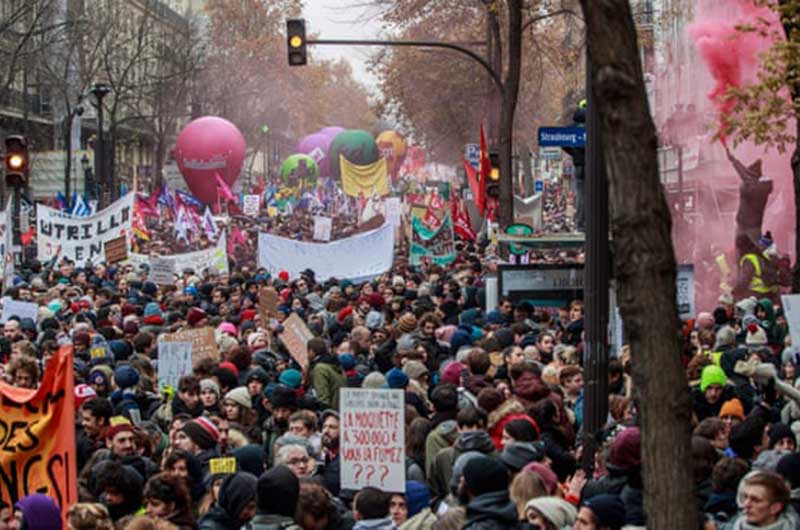Nationwide strike in France received mixed response as some travellers showed support for it while others complained about being embroiled in someone else’s fight. Amid anger over pension changes, transport workers bring France to standstill.
The working class in France held one of the biggest public strikes in decades against Prime Minister Emmanuel Macron’s plans to overhaul the pension system. More than 800,000 people have marched in cities across France. The prime protesters hailed from railways department, teachers and people from hospital staff.
A nationwide transport strike brought the country to a standstill. The crisis grip the country hard and the situation is expected to continue for the next few days as unions dug in. The president’s proposed pension changes would force millions to work longer or receive lower payments.
Transport workers are sincerely observing the strike which has resulted in service halt. Amid the crisis some flights were also cancelled and schools were shut closed f0r the time being. To control the protesters in Paris, police briefly fired teargas during skirmishes with black-clad protesters.
The protest turned violent and some protesters set ablaze a storage trailer, smashed windows and a bus shelter, and overturned cars. More than 6,000 riot police lined the route of the demonstration from Paris Gare du Nord to the east of the city.
The groups of officers also stopped people from walking towards the demonstration. Along with this, they searched their bags. Police had made 70 arrests and 9,000 searches by the late afternoon.
The banners of the protesters read “Macron out.”
“It’s a question of life or death for the French social system, which Macron is dismantling,” said Isabelle Jarrivet, 52, who had worked as an administrator in a town hall north of Paris for 20 years. On the other hand, Government argued that pension reforms are crucial to keep the system financially viable as the population ages. Unions argued that a universal system for all ensure jobs for millions of workers in both the public and private sectors. They will work beyond their legal retirement age (62) or face a severe drop in the value of their pension.









